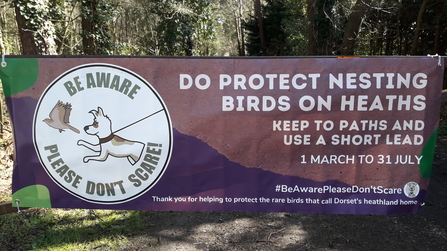Dorset heathland birds have adopted rather different life patterns. Nightjars leave our shores in the autumn for warmer climes and only come back in the spring. Dartford warblers (unlike many other warblers) opt to brazen it out and stay with us over the winter – from time to time suffering heavy population declines when we have very snowy winters. Woodlarks appear to ‘mix and match’ depending on where they are – in Dorset, populations generally stay with us although tend to move off the heath to farmland in the winter, whilst further east they may migrate abroad.


